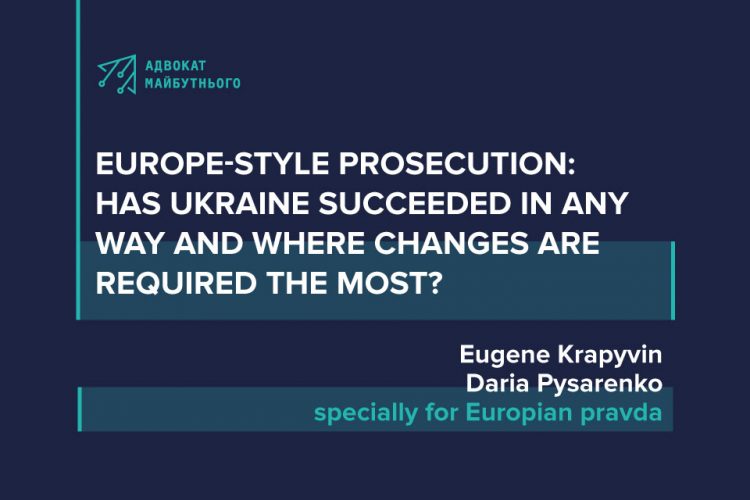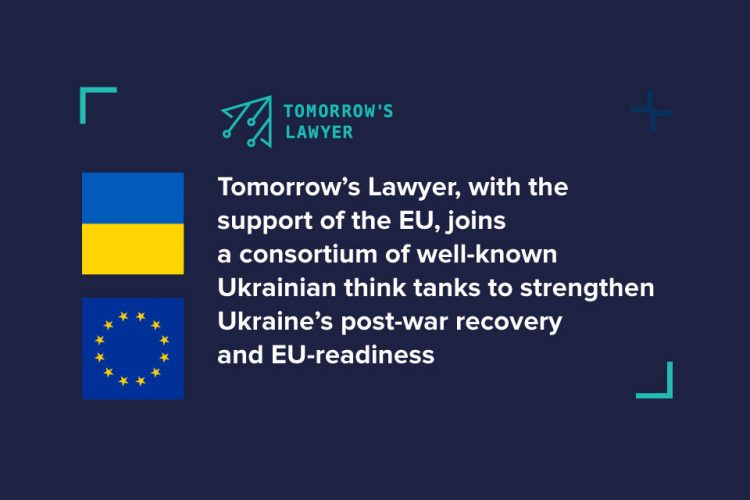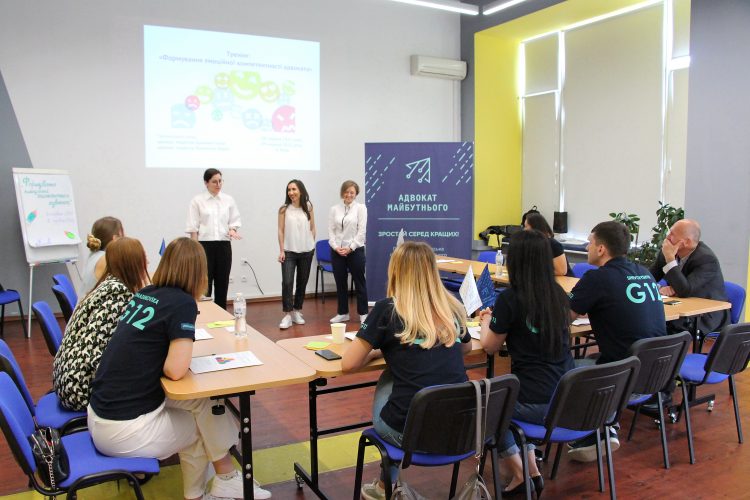
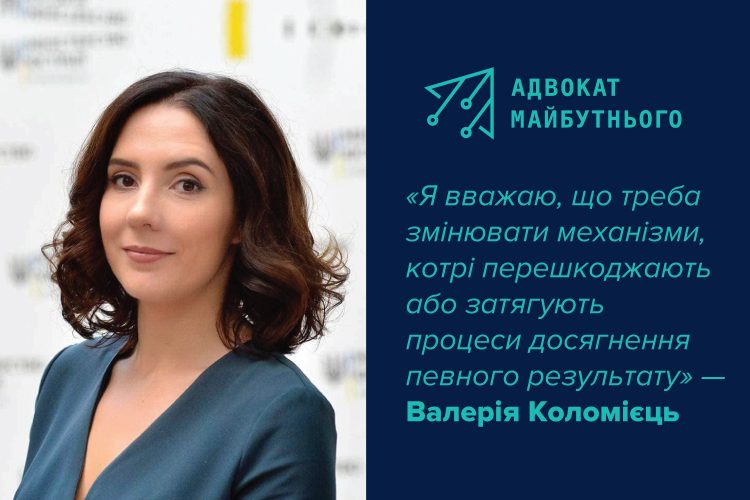
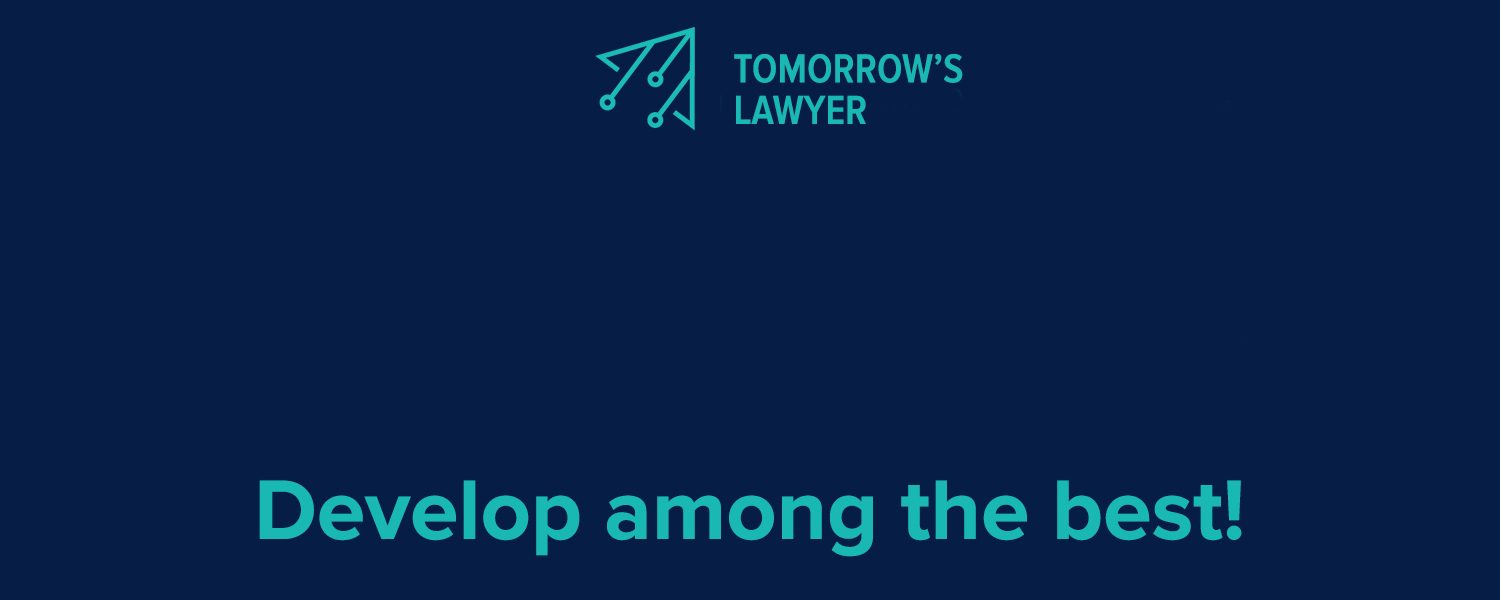
“We Aim to Become a Platform Uniting all Organizations Providing Legal Aid – Vleriia Kolomiets
In early September, Valeriia Kolomiyets became Deputy Minister of Justice.
Valeriia is a graduate of the “Tomorrow’s Lawyer” Program, worked as a lawyer in the field of criminal law, and was the regional coordinator of the counteraction to violations of the rights of vulnerable groups in the Lviv region. She also cooperated with the Special Prosecution Division of the Secretariat of the Ombudsman on behalf of the Commission and was a moderator trainer on the exchange of experience between attorneys providing free legal aid.
In an interview published in the Yurydychna Gazeta Weekly, Valeriia described the first steps in her new position, the abolition of the lawyers’ monopoly, the new initiatives in the free legal aid system, and the consequences of the Bankruptcy Code coming into force.
– You moved from legal practice to a ministerial position. Is this a chance for you to self-realize yourself or is it a kind of test?
 – Of course, this is the most difficult test of my life, but at the same time, it is an opportunity to fulfil a certain mission and tasks. In particular, I see that, together with partners, I can influence further development of the free legal aid system. This is very important to me!
– Of course, this is the most difficult test of my life, but at the same time, it is an opportunity to fulfil a certain mission and tasks. In particular, I see that, together with partners, I can influence further development of the free legal aid system. This is very important to me!
Free legal aid structure is one of the most important stakeholders in helping individuals obtain access to justice, through not only the provision of legal services, legal support in court, drafting certain procedural documents. Today, we are working on ways to empower people to solve their systemic problems rather than ad hoc legal issues.
[…]
How comfortable do you feel in the civil service? Do the bureaucratic procedures inherent in public office interfere with your work?
– I have been uncomfortable within the legal profession lately. I understood that the problems my clients were facing were systemic. At some point I lost interest in fighting them on my own. As for working in the Ministry, I cannot say that I feel uncomfortable despite the bureaucracy. I believe that there is a need to change the mechanisms that impede or delay the process of achieving a particular result.
– Were any procedures simplified?
– Yes. By the way, bureaucratic procedures are easy enough to abolish. First, we completely reboot the Ministry, abandoning those functions, which are not specific. We want the Ministry to carry out exactly the functions for which it was created, and in a way that belongs to the public policy-making authority.
Secondly, we have begun the process of eliminating the Ministry of Justice’s main territorial divisions and creating interregional agencies. Their functionality will be optimized. In particular, they abolished the obligation previously vested in our territorial offices to inspect the work of legal departments of other state bodies. In general, it is unclear why our employees should do this.
– You mentioned the Free Legal Aid system. FLA services in civil and administrative matters are used by a very small percentage of citizens (whose income is lower than the subsistence level). Are you planning to expand or maybe narrow this category of people?
– At the end of 2016, the approach that took into account family income was changed. In practice, there were absurd situations where a person wanted, for example, to dissolve a marriage or to withdraw alimony, and in order to obtain free secondary legal assistance, they had to provide income documents of the defendant. Now only the average monthly income of a person is taken into account. Today, everyone is entitled to free secondary legal aid if the average monthly income does not exceed UAH 4014 for able-bodied persons and UAH 3128 for disabled persons.
Full text of the interview is available at the Ukrainian web-page.
***
The opinions expressed in this article are the author’s own and do not reflect the view of the “Tomorrow’s Lawyer” Program, the Ukrainian Bar Association, the Bar Association of Legal Aid Providers, the Quality and Accessible Legal Aid in Ukraine Project, the Canadian Bureau for International Education, or the Government of Canada and the Law Enforcement Section of the United States Embassy in Ukraine.
“Tomorrow’s Lawyer” is a powerful network of lawyers uniting opinion leaders in the legal profession, who provide legal assistance in accordance with the highest ethical standards, act as agents of change in society and leaders in the professional community.
The “Tomorrow’s Lawyer” Program was launched in 2016 and first implemented within the “Quality and Accessible Legal Aid” Project, carried out by the Canadian Bureau for International Education with the support of the Government of Canada in cooperation with the Legal Aid Coordination Centre. It is currently being implemented and developed with the support of the US Embassy’s Law Enforcement Section in Ukraine, the “Tomorrow’s Lawyer” NGO, in partnership with the Ukrainian Bar Association and the Bar Association of Legal Aid Providers.
